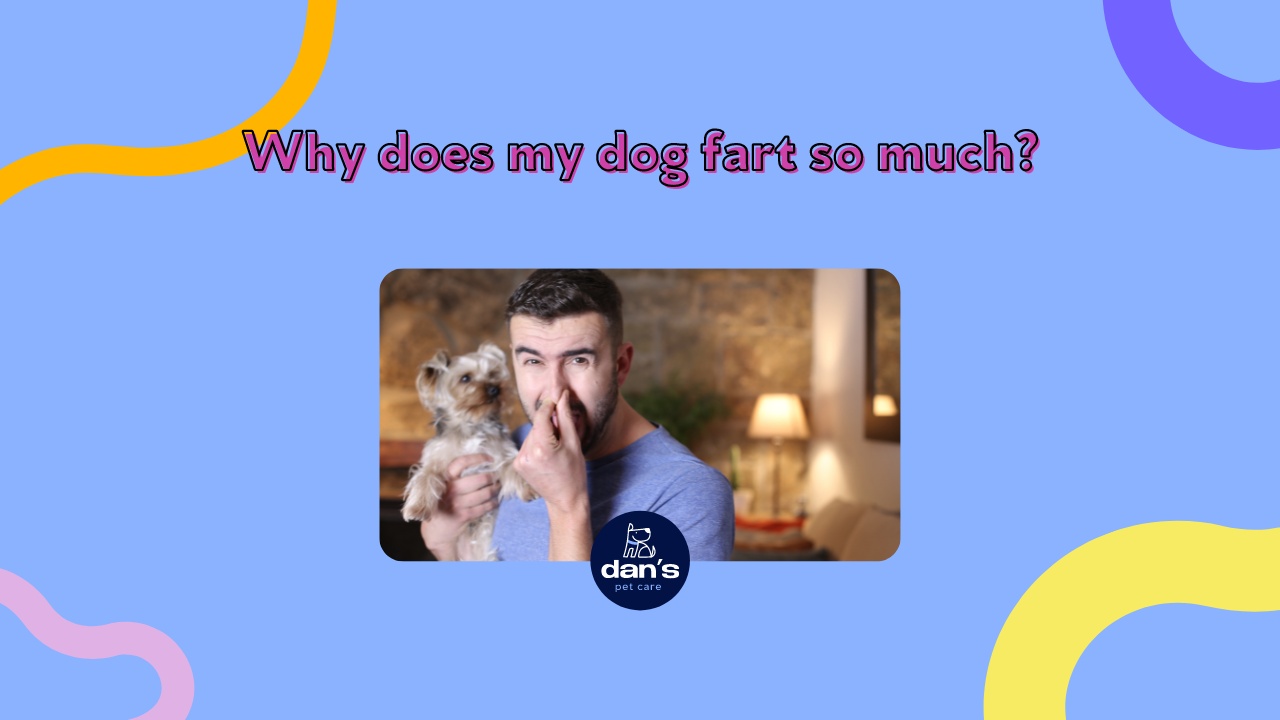If you’re a dog owner, you’ve probably had moments when your furry friend’s gas problems have left you gasping for air. While occasional flatulence is normal for dogs, excessive farting can be a cause for concern and sometimes embarrassment. Understanding why your dog farts so much can help you address the issue and ensure your pet's digestive health is in top shape. This article explores the reasons behind excessive flatulence in dogs, with a focus on specific breeds, particularly brachycephalic breeds, and offers some tips on managing the problem.
Disclaimer: We at Dan's Pet Care are not veterinarians, and the information provided here should not be taken as professional veterinary advice. If your dog has persistent or severe gas issues, please consult a veterinarian for a proper diagnosis and treatment.
Common Causes of Flatulence (Farts) in Dogs
Dietary Issues
Low-Quality Food: Foods that are difficult to digest or contain high levels of fiber, fillers, or by-products can cause gas. Switching to a high-quality, easily digestible diet can often help.
Food Allergies and Intolerances: Some dogs are allergic or intolerant to certain ingredients, such as dairy, soy, or wheat, which can lead to digestive issues and gas.
Human Food: Feeding your dog table scraps or certain human foods can upset their stomach and lead to gas.
Eating Habits
Fast Eating: Dogs that eat their food too quickly tend to swallow a lot of air along with their food, which can cause gas.
Brachycephalic Breeds: Breeds with short noses, such as Bulldogs, Pugs, and Boston Terriers, are prone to swallowing more air while eating due to their facial structure. This extra air can result in increased flatulence.
Medical Conditions
Gastrointestinal Diseases: Conditions like inflammatory bowel disease (IBD), parasites, or infections can cause excessive gas.
Pancreatic Issues: Problems with the pancreas, such as exocrine pancreatic insufficiency (EPI), can lead to improper digestion and increased flatulence.
Poor Gut Health: An imbalance in the gut microbiome can also cause excessive gas production.
Brachycephalic Breeds and Flatulence (Dog Farts)
Brachycephalic breeds, known for their distinctive short noses and flat faces, often experience more flatulence than other dogs. These breeds include Bulldogs, Pugs, Boston Terriers, and Shih Tzus. The structure of their faces makes them more prone to swallowing air while eating or drinking, which can result in more gas. Additionally, their unique anatomy can sometimes lead to digestive issues that exacerbate the problem.
Things to Look For
While occasional flatulence is normal, excessive gas can be a sign of an underlying issue. Here are some things to watch for:
Frequency and Smell of Dog Farts
If your dog is farting more frequently than usual or the smell is particularly foul, it could indicate a dietary or medical issue.
Changes in Diet
Consider whether there have been any recent changes in your dog’s diet or if they have consumed something unusual that could cause digestive upset.
Other Symptoms
Look for additional symptoms such as diarrhea, vomiting, loss of appetite, or weight loss. These could indicate a more serious health problem that needs veterinary attention.
Behavioral Changes
If your dog seems uncomfortable, is whining, or is unusually lethargic, it could be a sign of gastrointestinal distress.
Tips for Managing Your Dog’s Flatulence
Adjust Their Diet
Switch to a high-quality, easily digestible dog food.
Avoid feeding your dog table scraps and foods that are known to cause gas, such as beans, broccoli, and dairy products.
Consider a limited ingredient diet if you suspect food allergies or intolerances.
Slow Down Their Eating
Use a slow feeder bowl or puzzle feeder to slow down your dog’s eating and reduce the amount of air they swallow.
Feed smaller, more frequent meals instead of one or two large meals a day.
Regular Exercise
Ensure your dog gets plenty of exercise, as physical activity can help with digestion and reduce gas.
Probiotics
Adding a probiotic supplement to your dog’s diet can help maintain a healthy gut microbiome and improve digestion.
Regular Veterinary Check-Ups
Schedule regular check-ups with your veterinarian to monitor your dog’s health and address any digestive issues early on.
While it’s common for dogs to experience some flatulence, excessive gas can be a sign of dietary issues, eating habits, or underlying health problems. Brachycephalic breeds, in particular, are more prone to swallowing air and experiencing digestive issues due to their unique anatomy. By understanding the causes and keeping an eye out for other symptoms, you can take steps to manage your dog’s flatulence and ensure they stay healthy and comfortable.
Remember, if your dog’s gas problems persist or are accompanied by other symptoms, it’s essential to consult a veterinarian for a proper diagnosis and treatment. Your dog’s health and well-being are of utmost importance, and professional advice is crucial in addressing any serious issues.





